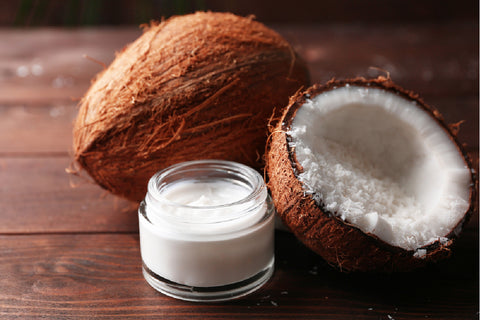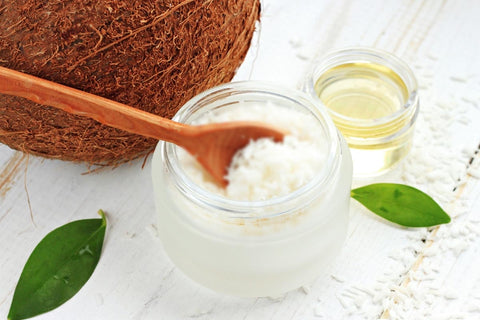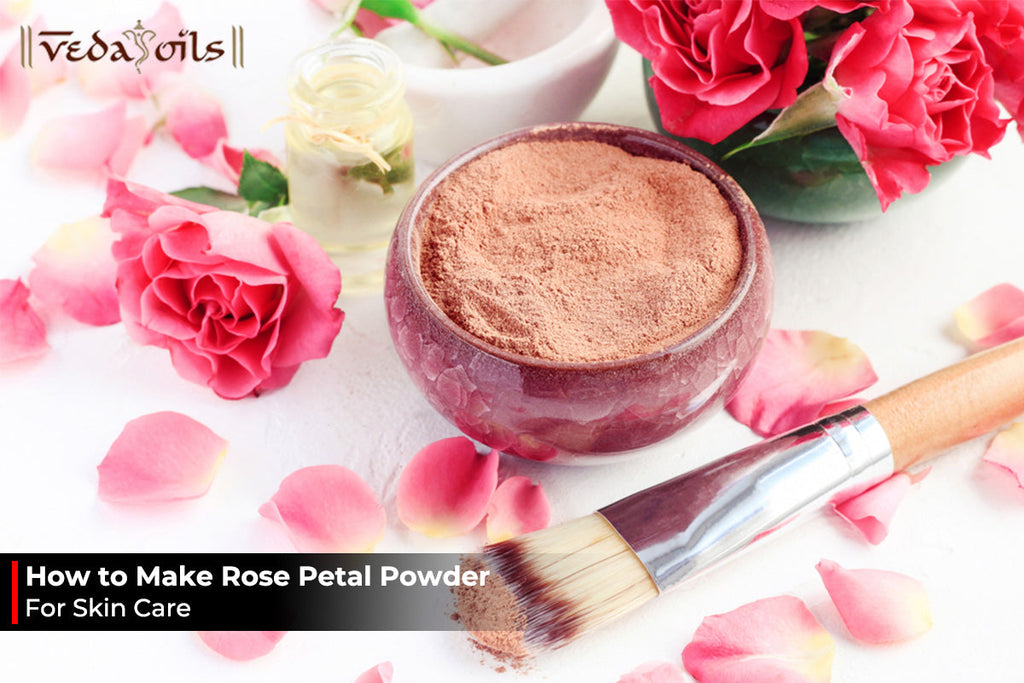DIY Coconut Oil Night Cream - Natural Skincare Recipe
For years, we have been relying on coconut-based products for our skincare. But we also know that all we use are those market-based creams that promise to have coconut elements in them. Still, whether they have it or not, we need to figure out how to clear that confusion and use something that we know has coconut benefits.

Yes, we are talking about using a DIY coconut cream. Coconut cream is a readily available product in the market, but making one from scratch at home is a fresh and natural product from which you will reap benefits. Let's dive in and learn how to make a DIY coconut cream.
How to Make Coconut Cream at Home
When it comes to making coconut cream, you have to understand that it is a popular ingredient used in many places, not just in cosmetic procedures. Now, what makes a perfect coconut cream !
Know About Ingredients:-
Mature Coconuts: Always choose coconuts that feel heavy for their size and have an audible sloshing sound when shaken. These coconuts indicate that they have a good amount of coconut meat and water. Coconut meat is a rich source of all the coconut flavor and creamy texture.
- Water: No cream can be made without water because it's the water that helps blend the coconut flesh and extract its creamy goodness. So, water is a must-have ingredient for making coconut cream.
- Thickeners: Some varieties of coconut cream, exceptionally light coconut milk, require thickeners. Moreover, you can also use cornstarch to increase the viscosity of the coconut cream.

Ingredients with quantity
- Virgin Coconut Oil - 1 Cup
- Boiling Water - 1 Cup
Directions - Step by Step
Step 1: Firstly, grate the coconut and pour boiling water over it.
Step 2: Leave this for a minimum of 30 minutes.
Step 3: Now put it in a muslin cloth and squeeze it out.

Step 4: The first pressing produces coconut cream, which gives double cream density after several hours of refrigeration.
Step 5: Now, you can keep the grated coconut to make the coconut milk.
Step 6: Just remember to carefully grate the white part of the coconut and avoid the brown skin as it will change the colour and texture of the cream.
Conclusion
In conclusion, making DIY coconut cream is easy; it looks like many hassles, but it's not. So, now you know the ingredients, directions, and everything else, it's time to get your hands dirty and make a fresh homemade coconut cream for your new experiments in the kitchen.
Frequently Asked Questions
Certainly! Here is a list of frequently asked questions related to the introduction of DIY Coconut Cream:
Q. What is DIY Coconut Cream?
Ans. DIY Coconut Cream refers to homemade coconut cream that you can prepare from scratch using coconut and other simple ingredients.
Q. Why make Coconut Cream at home?

Ans. Making coconut cream at home allows you to control the ingredients, ensuring a pure and fresh product without additives or preservatives. It can also be a cost-effective alternative to store-bought options.
Q. What are the main ingredients needed to make DIY Coconut Cream?
Ans. The primary ingredients are fresh coconut, water, and possibly a sweetener or flavor enhancer based on personal preference.
Q. How is DIY Coconut Cream different from canned coconut cream?
Ans. DIY Coconut Cream is made at home, giving you the flexibility to choose high-quality ingredients and adjust the consistency and flavor. Canned coconut cream may contain additives or stabilizers.
Q. Is DIY Coconut Cream easy to make?
Ans. Yes, making coconut cream at home is relatively easy. It involves a few simple steps and minimal ingredients.
You May Also Like:
Buy Products
-
 Armoise Essential Oil
Armoise Essential Oil -
 Arrowroot Powder
Arrowroot Powder -
 Chamomile Essential Oil
Chamomile Essential Oil -
 Champaca Essential Oil
Champaca Essential Oil -
 Cinnamon Bark Essential Oil
Cinnamon Bark Essential Oil
Related Articles
-
 How to Make Marble Candles | DIY Marble Pillar Candle
How to Make Marble Candles | DIY Marble Pillar Candle -
 DIY Tanning Oil - Best Homemade Recipes For Tan Removal
DIY Tanning Oil - Best Homemade Recipes For Tan Removal -
 Homemade Mustache Wax: Best DIY Recipe With Natural Ingredients
Homemade Mustache Wax: Best DIY Recipe With Natural Ingredients -
 Kojic Acid vs. Glycolic Acid: Which Is Better for Skin Whitening?
Kojic Acid vs. Glycolic Acid: Which Is Better for Skin Whitening? -
 5 Best Grades of Essential Oils - The Grading System
5 Best Grades of Essential Oils - The Grading System -
 How to Make Rose Petal Powder For Skin Care Homemade Recipe
How to Make Rose Petal Powder For Skin Care Homemade Recipe
Disclaimer :- This article is intended for informational and educational purposes only and should not be considered a substitute for professional medical advice. For specific health concerns or treatment, please consult your personal physician. The article's editor, writer, and VedaOils organization do not assume any responsibility for any health outcomes resulting from the information provided. Readers are strongly encouraged to seek advice from their physician before acting on any recommendations made in these articles.

















 Sign in
Sign in Register now
Register now My Reward Points
My Reward Points









